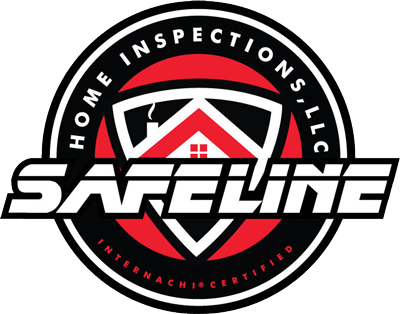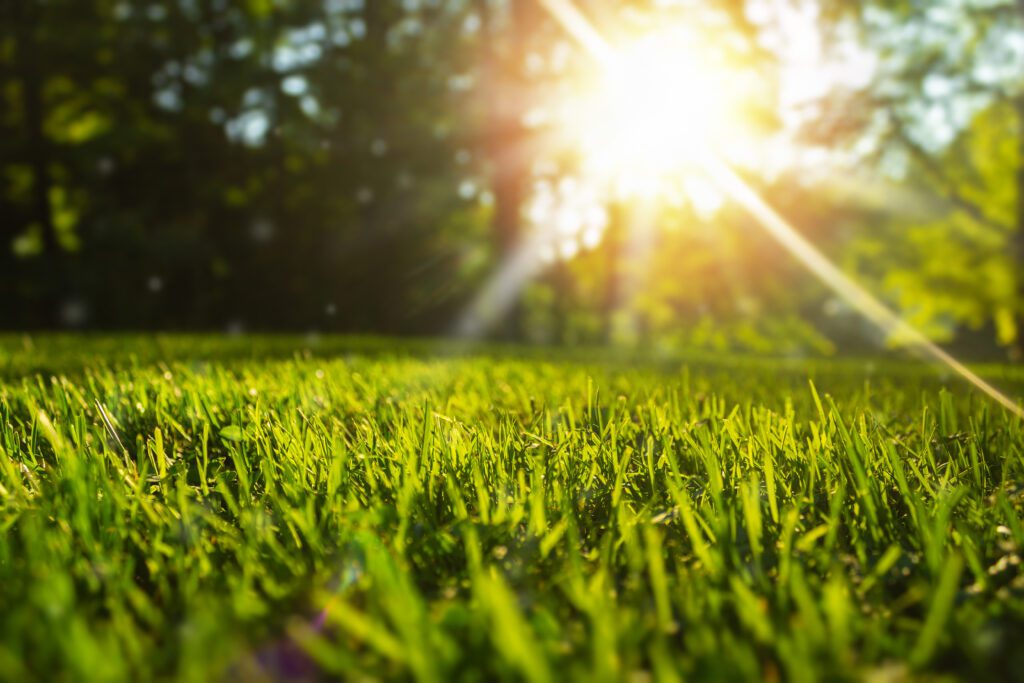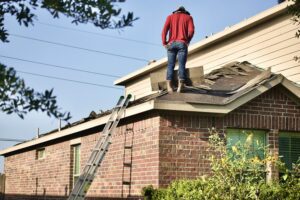Growing Grass in Tampa and Water Restrictions
Hey there! Are you a proud homeowner in Tampa looking to grow a beautiful lawn? Having a lush green yard can enhance your home’s curb appeal and provide a lovely outdoor space for you and your family to enjoy. However, with the water restrictions in Hillsborough County, growing and maintaining a healthy lawn can be quite a challenge.
But don’t worry, we’ve got you covered! In this article, we’ll provide you with all the information you need to know about growing grass in Tampa and navigating the water restrictions in Hillsborough County. We’ll discuss the different types of grass that thrive in the Tampa climate, how to plant and maintain them, and the pros and cons of each type of grass. Additionally, we’ll explore the water restrictions in the area and provide some tips on how to conserve water while maintaining your lawn.
So, let’s dive in and learn how to grow a beautiful lawn in Tampa, despite the challenges posed by water restrictions. Are you ready? Let’s get started!
Understanding the Water Restrictions In Tampa
Before we dive into the tips, it’s essential to understand the water restrictions in Tampa. The Southwest Florida Water Management District (SWFWMD) regulates water usage in Tampa and its surrounding areas. The restrictions limit the times and days residents can water their lawns based on their address.
For instance, odd-numbered addresses can only water their lawns on Wednesdays and Saturdays, while even-numbered addresses can only do so on Thursdays and Sundays. The permitted time for watering is between 6 p.m. and 8 a.m., and residents can water for a maximum of one hour on the allowed days. As of April 2023, watering restrictions are in place from March 1st to November 30th
Current Watering Schedule
The current watering schedule in Hillsborough County allows watering twice a week based on your address. Addresses ending in even numbers can water on Tuesdays and Saturdays, and addresses ending in odd numbers can water on Wednesdays and Sundays. Watering is not allowed between 8:00 a.m. and 6:00 p.m.
Penalties for Violating Water Restrictions
The challenge of water restrictions is one that hits close to home for many Tampa residents. As the climate changes and droughts become more frequent, conserving water has become a top priority for the city. However, these restrictions can pose a major challenge for those who take pride in their lush, green lawns. It can be difficult to strike a balance between maintaining a healthy lawn and complying with water usage regulations. As such, violating water restrictions in Hillsborough County can result in penalties. The first violation typically results in a warning, while subsequent violations can result in fines ranging from $100 to $450. It is essential to follow the water restrictions to avoid penalties and contribute to water conservation efforts.

Tips for Growing Grass in Tampa Amidst Water Restrictions
Despite the water restriction in place, how can homeowners grow awesome-looking grass in Tampa?
Choose the Right Grass for Tampa
When choosing grass for your lawn in Tampa, it’s important to consider the climate and water availability. Some grasses are better suited for drought conditions and can withstand limited watering, while others require more water to thrive. Some of the best grasses commonly grown in Tampa, include Bermuda Grass, St. Augustine Grass, Zoysia Grass, and Bahia Grass. Each has its own unique characteristics that make it suitable for different environments and preferences.
Bermuda Grass
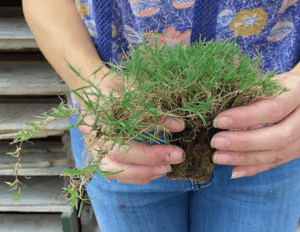
Bermuda Grass is a warm-season grass that is well-suited for areas that receive a lot of direct sunlight. It is known for its excellent durability and fast growth rate, making it a popular choice for sports fields and golf courses. However, it does require frequent mowing and can be difficult to maintain.
Benefits:
- Fast growth rate
- Excellent durability
- Thrives in direct sunlight
- Good for high-traffic areas
Cons:
- Requires frequent mowing
- Can be difficult to maintain
- Can be invasive and difficult to control
St. Augustine Grass
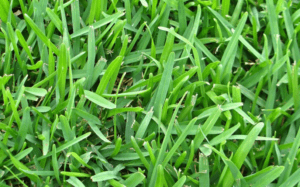
St. Augustine Grass is another popular choice for lawns in Tampa. It is a warm-season grass that is known for its shade tolerance and ability to thrive in high humidity. However, it can be susceptible to disease and requires regular maintenance to keep it healthy.
Benefits:
- Shade tolerant
- Thrives in high humidity
- Good for low-traffic areas
- Attractive appearance
Cons:
- Susceptible to disease and pests
- Requires regular maintenance
- Can be difficult to establish
Zoysia Grass
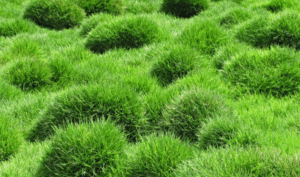
Zoysia Grass is a warm-season grass that is well-suited for areas with moderate foot traffic. It is known for its dense growth and ability to withstand drought conditions, making it a good choice for water-restricted areas. However, it does require a lot of maintenance to keep it looking its best.
Benefits:
- Dense growth and attractive appearance
- Can tolerate drought conditions
- Low-maintenance
- Good for moderate-traffic areas
Cons:
- Slow growth rate
- Difficult to establish
- Difficult to cut because of its thickness
- Susceptible to pests and disease
- Requires frequent watering
Bahia Grass
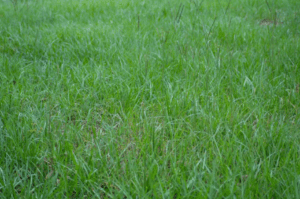
Bahia Grass is a warm-season grass that is well-suited for areas with poor soil conditions. It is known for its ability to grow in sandy or infertile soils and can tolerate drought conditions. However, it has a coarse texture and can be difficult to mow.
Benefits:
- Can grow in poor soil conditions
- Tolerates drought conditions
- Low-maintenance
- Good for low-traffic areas
Cons:
- Coarse texture
- Difficult to mow
- Can be invasive and difficult to control
- Not suitable for high-traffic areas
How They Are Planted
I can almost hear you thinking “How Exactly does one Plant Grass in Tampa?” Here’s the big secret! Planting the above grass in Tampa requires proper preparation and timing. Just stay with me now to discover essential tips for planting grass in the region:
Seeding vs. Sodding
Seeding and sodding are two common methods for planting grass. Seeding involves spreading grass seed over the soil, while sodding involves laying down pre-grown grass patches. Seeding is typically more cost-effective than sodding, but it can take longer for the grass to establish. Sodding can provide an instant lawn, but it is more expensive and requires more water during the establishment phase.
Timing
Regardless of the type of grass, the best time to plant grass in Tampa is during the warm season, typically from late spring to early fall. Planting during the cooler months can result in poor growth and establishment. It is also essential to plant grass before the start of the rainy season to ensure that the new grass has enough water to establish properly
Soil Preparation
Healthy soil is the foundation of any thriving lawn, and preparing your soil properly is essential to ensure your grass has the nutrients it needs to grow strong and vibrant. But what does it mean to prepare your soil? It starts with testing the pH level of your soil to determine its acidity or alkalinity. Depending on the results, you may need to adjust the soil’s pH by adding amendments such as lime or sulfur. Next, you’ll want to add organic matter such as compost or manure to improve the soil’s structure and nutrient content. This can help the soil retain moisture and provide essential nutrients for your grass. It’s also important to make sure your soil is loose and aerated, as compacted soil can prevent water and nutrients from reaching your grassroots. One way to loosen compacted soil is by using a garden fork to poke holes into the ground. Overall, preparing your soil may take some effort, but it’s worth it to ensure your lawn thrives and remains healthy in the long run. With the right soil preparation, you can set your Tampa lawn up for success, even amidst water restrictions.
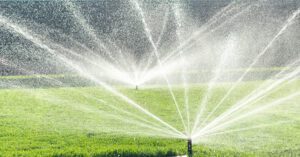
Watering deeply and infrequently
Once you have planted your grass after soil preparation, proper maintenance is essential for a healthy lawn. One of the proper to maintain your grass in Tampa is to by watering deeply and infrequently. For what it’s worth, watering is crucial for grass growth. Yet, it is important to follow the water restrictions enforced by Hillsborough County. So, water restrictions can make it challenging to keep your lawn looking lush and green. But there are ways to ensure your grass remains healthy even with limited watering. One key strategy is to water deeply and infrequently. This means giving your lawn a thorough soaking, allowing the water to penetrate deeply into the soil, rather than shallow watering multiple times a week. When you water deeply, you encourage your grass roots to grow deeper and stronger, making them more resilient during periods of drought. It’s important to note that during water restrictions, you may need to adjust your watering schedule to comply with local regulations. This may mean watering on certain days or at certain times of day. Additionally, it’s a good idea to use a timer to ensure you don’t overwater your lawn, which can lead to root rot and other issues. By watering deeply and infrequently, you can help your grass thrive even amidst water restrictions, and ensure your lawn remains a beautiful and vibrant oasis in your yard.
Use Drought-Tolerant Fertilizers
When water restrictions are in place, it’s important to make the most of the water you do use on your lawn. One way to do this is by using drought-tolerant fertilizers. These types of fertilizers are specifically designed to help your grass grow strong and healthy even during periods of limited water. They contain essential nutrients that promote root growth and help your grass withstand drought conditions. Using drought-tolerant fertilizers not only helps your lawn look its best, but it can also save you time and money by reducing the need for additional watering. When shopping for fertilizers, look for those labeled as “slow-release” or “water-soluble,” as these are generally the most effective for drought-tolerant lawn care. Additionally, be sure to follow the instructions carefully to avoid over-fertilizing, which can be harmful to your lawn and the environment. By using drought-tolerant fertilizers, you can help your lawn stay healthy and vibrant, even in the face of water restrictions.
Mow Your Lawn Correctly
Mowing your lawn may seem like a mundane chore, but it can actually make a big difference in the health and appearance of your grass, especially during water restrictions in Tampa. First and foremost, make sure your mower blades are sharp, as dull blades can cause ragged cuts that leave your grass vulnerable to pests and disease. Aim to mow your lawn to a height of about three inches, as this will help retain moisture and shade the soil, reducing water evaporation. Avoid cutting more than one-third of the grass blade at a time, as this can stress the grass and make it more susceptible to drought damage. Instead, mow frequently to keep your lawn looking neat and tidy.
Also, consider leaving your grass clippings on your lawn after mowing. This can provide a natural fertilizer for your lawn, as the clippings will break down and release nutrients back into the soil. However, if your grass is particularly tall, it may be necessary to bag the clippings and remove them, as leaving too much debris on the lawn can create a thatch layer that can suffocate your grass. Finally, avoid mowing your lawn during the hottest part of the day, as this can cause the grass to wilt and become more vulnerable to drought stress. Instead, try to mow in the early morning or late evening when temperatures are cooler. With these tips, you can help your lawn thrive despite the water restrictions in Tampa.
Consider Artificial Turf
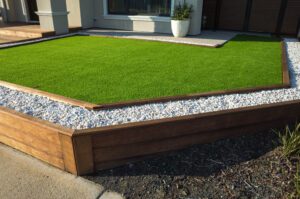
If you’re struggling to grow grass in Tampa amidst water restrictions, you may want to consider switching to artificial turf. While some may argue that it lacks the natural look and feel of real grass, it offers a host of benefits that are hard to ignore. For one, artificial turf requires little to no maintenance, saving you time and money in the long run. It’s also extremely durable and can withstand heavy foot traffic, making it ideal for families with kids or pets. Plus, artificial turf doesn’t require any watering, making it the perfect choice during times of drought and water restrictions.
But perhaps the biggest advantage of artificial turf is its water-saving capabilities. While a natural lawn requires an average of 50-60 inches of water per year to stay healthy, artificial turf doesn’t require any water at all. This can save you hundreds, if not thousands, of gallons of water each year, which is especially important in areas like Tampa which are prone to droughts and water shortages.
Another benefit of artificial turf is that it’s eco-friendly. Because it doesn’t require any water or fertilizers, it doesn’t contribute to harmful runoff or pollution. It also eliminates the need for gas-powered lawnmowers, which can produce harmful emissions and contribute to air pollution. So if you’re looking for a low-maintenance, water-saving, and eco-friendly option for your lawn, artificial turf may be the way to go.
Importance of water conservation In Tampa
The importance of conservation cannot be overstated, especially when it comes to our water resources. Water is the source of all life, and it is crucial that we take steps to preserve and protect it for future generations. As Tampa residents, we have a responsibility to do our part in conserving water, especially during times of drought and water shortages. By adopting sustainable lawn care practices and reducing our overall water usage, we can make a significant impact on the health of our local water systems
Final Thoughts
Growing grass in Tampa can be a challenge, but by choosing the right type of grass and maintaining it properly, you can create a beautiful and sustainable lawn. Also, by following the water restrictions in Hillsborough County, you can help conserve water and avoid penalties for violating the restrictions. With the right care, your lawn can thrive while minimizing its impact on the environment.
Need help with your house’s lawn sprinkler system? We, your home inspectors Tampa can inspect it for you. Schedule your inspection with us today!
References
- https://www.tampagov.net/water/water-restrictions
- https://edis.ifas.ufl.edu/topic_lawn_care
- https://www.solutionsforyourlife.ufl.edu/lawn_and_garden/
- https://www.tampaelectric.com/
- https://www.wateruseitwisely.com/
